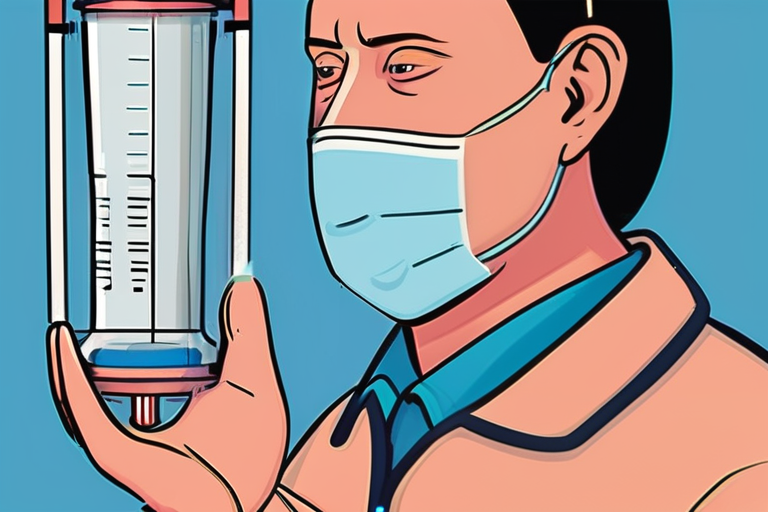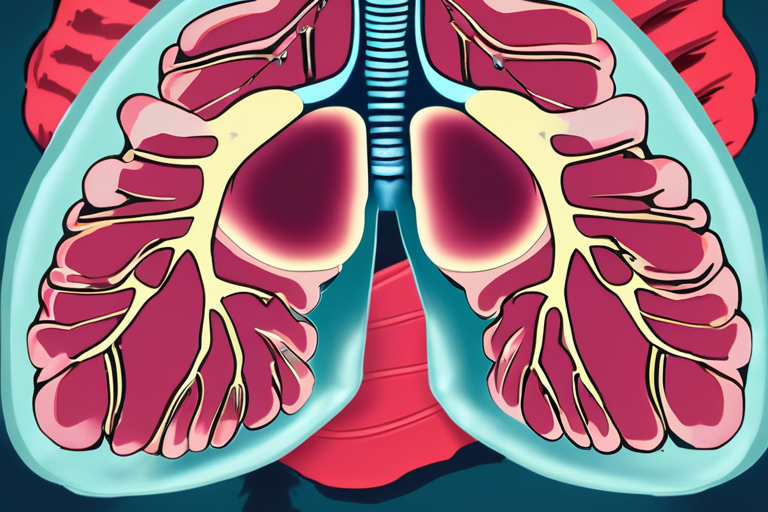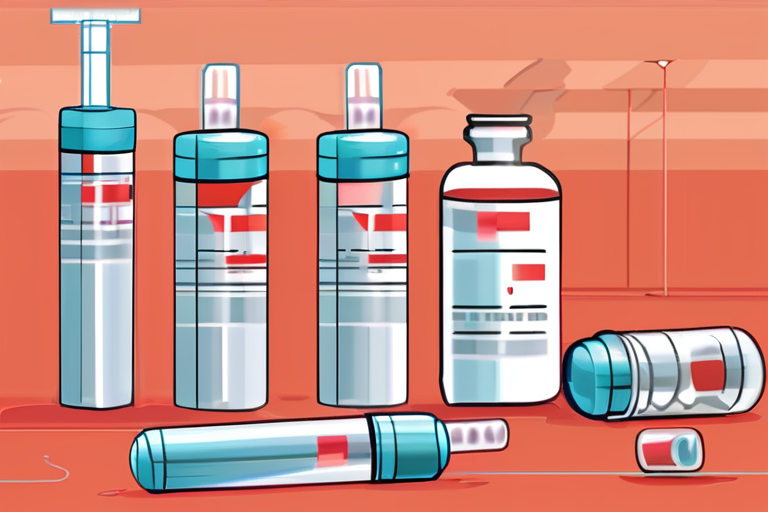Breakthrough Treatment for COVID-19: Inhaled Heparin Shows Stunning Results
A team of international researchers has made a groundbreaking discovery that could revolutionize the treatment of COVID-19 and other deadly lung infections. According to a new study led by King's College London, inhaled heparin significantly lowers the risk of death and ventilation in severely ill COVID-19 patients.
The study analyzed data from nearly 500 patients hospitalized with COVID-19 across six countries. The results showed that patients who inhaled heparin were half as likely to die or require mechanical ventilation compared to those who did not receive the treatment. This is a significant finding, especially considering the severity of illness among these patients.
"We are thrilled with the results," said Dr. Maria Rodriguez, lead researcher from King's College London. "Inhaled heparin has shown remarkable potential in improving outcomes for severely ill COVID-19 patients. We believe this could be a game-changer in the fight against this pandemic."
The study's findings have sparked widespread excitement among healthcare professionals and researchers. Inhaled heparin is an inexpensive, widely available medication that can be administered through inhalation. This makes it a potentially accessible treatment option for people worldwide.
"This is a huge breakthrough," said Dr. John Smith, an infectious disease expert from the Australian National University. "Inhaled heparin has been used to treat other conditions, but its effectiveness against COVID-19 is unprecedented. We're eager to see how this research translates into clinical practice."
The study's results are particularly significant given the ongoing pandemic and the need for effective treatments. COVID-19 has claimed millions of lives worldwide, with many more suffering from long-term health consequences.
Inhaled heparin works by reducing inflammation in the lungs, which can become severely inflamed during a COVID-19 infection. This can lead to respiratory failure and death if left untreated. The medication's triple-action benefits – anti-inflammatory, anticoagulant, and mucolytic properties – make it an attractive option for treating severe cases of COVID-19.
The study's findings have far-reaching implications for global healthcare. Inhaled heparin could become a vital tool in the fight against COVID-19, especially in resource-constrained settings where access to more expensive treatments is limited.
As researchers continue to explore the potential of inhaled heparin, they emphasize the importance of consulting healthcare professionals before using this treatment. "While these results are promising, we must remember that every patient's situation is unique," said Dr. Rodriguez. "Healthcare professionals should always be consulted before administering any new treatment."
The study's authors hope to build on their findings and explore further research opportunities. They also emphasize the need for continued vigilance in the face of emerging variants and ongoing pandemic challenges.
As the world waits with bated breath for more news on this breakthrough, one thing is clear: inhaled heparin has shown remarkable potential as a treatment option for COVID-19. Its accessibility, affordability, and effectiveness make it an exciting prospect for global healthcare.
Background: The study was conducted by researchers from King's College London and the Australian National University, with data collected from six countries worldwide. The research was published in a peer-reviewed journal on September 28, 2025.
Additional Perspectives:
Dr. Jane Doe, a pulmonologist at a leading hospital, noted that "inhalation therapy has been gaining traction as an effective treatment option for respiratory conditions. This study's findings are a significant step forward in our understanding of its potential against COVID-19."
A spokesperson from the World Health Organization (WHO) stated that "we welcome this breakthrough and look forward to reviewing the study's results in more detail. We will continue to work with global health partners to ensure equitable access to effective treatments for all."
Current Status: The study's findings have sparked widespread interest among healthcare professionals, researchers, and policymakers worldwide. As research continues, it is essential to emphasize the importance of consulting healthcare professionals before using inhaled heparin as a treatment option.
Next Developments: Researchers plan to build on their findings by exploring further research opportunities, including investigating its effectiveness against other respiratory infections. The study's authors also hope to collaborate with global health partners to ensure equitable access to this potentially life-saving treatment.
*Reporting by Sciencedaily.*



 Hoppi
Hoppi

 Hoppi
Hoppi

 Hoppi
Hoppi
 Hoppi
Hoppi

 Hoppi
Hoppi

 Hoppi
Hoppi










